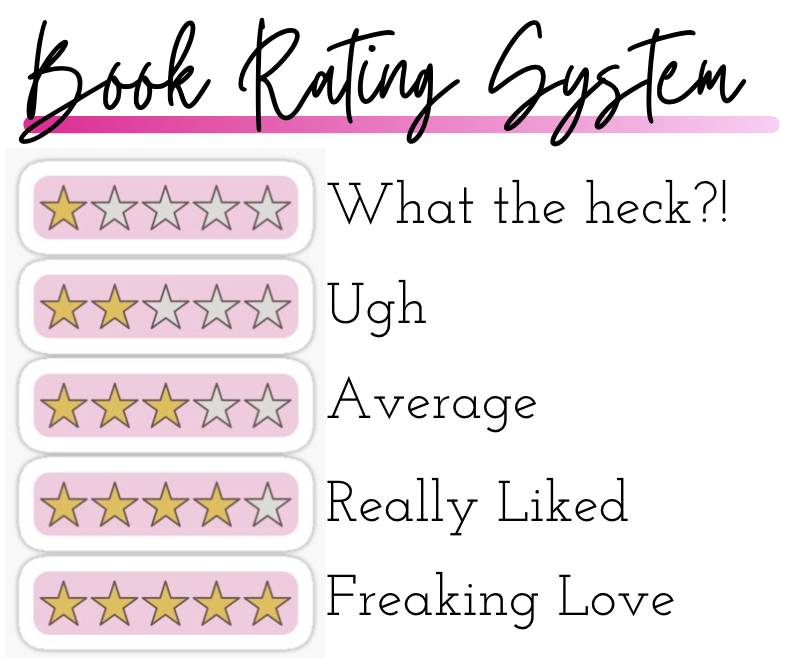
I found this really cool tag via Lindsey Reads and it sounded so fun to do. I haven't done a tag in a while so I thought that I would do one. I love doing tags where they are about you and self-discovery. I am in a very transitional part of my life right now praying a lot about where I want to be location-wise in the country and if I am going to move back east. Also, where I want to go to graduate school etc. I have a lot of hard choices that I need to make in the next six months that I have become super stressed thinking about everything.
My heart has always been back east it's just a lot to move 3,000 miles away and it would be a big transition for sure. Change has always stressed me out. I am just so tired of the desert in Phoenix and the heat. Money has been a stressful factor as well and there are way more job opportunities back east for me and the medical jobs are better and more abundant. Health care in Phoenix is terrible. I would miss my friends and family in Phoenix like crazy though. It's just a lot to think about.
Anyways, before I keep venting and carrying on let's get to the tag:
1. What is the meaning of my name?
2. What is my Myer-Briggs personality type? [LINK]
Advocates are the rarest personality types of all. Still, Advocates leave their mark on the world. They have a deep sense of idealism and integrity, but they aren’t idle dreamers – they take concrete steps to realize their goals and make a lasting impact.
Advocates’ unique combination of personality traits makes them complex and quite versatile. For example, Advocates can speak with great passion and conviction, especially when standing up for their ideals. At other times, however, they may choose to be soft-spoken and understated, preferring to keep the peace rather than challenge others.
Standing Up for What’s Right
Advocates generally strive to do what’s right – and they want to help create a world where others do the right thing as well. People with this personality type may feel called to use their strengths – including creativity, imagination, and sensitivity – to uplift others and spread compassion. Concepts like egalitarianism and karma can mean a great deal to Advocates.
Advocates are the most likely personality type to choose a minimalist lifestyle.
Advocates may see helping others as their purpose in life. They are troubled by injustice, and they typically care more about altruism than personal gain. As a result, Advocates tend to step in when they see someone facing unfairness or hardship. Many people with this personality type also aspire to fix society’s deeper problems, in the hope that unfairness and hardship can become things of the past.
Connecting with Others (and Themselves)
Advocates may be reserved, but they communicate in a way that is warm and sensitive. This emotional honesty and insight can make a powerful impression on the people around them.
Advocates value deep, authentic relationships with others, and they tend to take great care with other people’s feelings. That said, these personalities also need to prioritize reconnecting with themselves. Advocates need to take some time alone now and then to decompress, recharge, and process their thoughts and feelings.
The Cost of Success
At times, Advocates may focus so intently on their ideals that they don’t take care of themselves. Advocates may feel that they aren’t allowed to rest until they’ve achieved their unique vision of success, but this mindset can lead to stress and burnout. If this happens, people with this personality type may find themselves feeling uncharacteristically ill-tempered.
Advocates might find themselves feeling especially stressed in the face of conflict and criticism. These personalities tend to act with the best of intentions, and it can frustrate them when others don’t appreciate this. At times, even constructive criticism may feel deeply personal or hurtful to Advocates.
A Personal Mission
Many Advocates feel compelled to find a mission for their lives. When they encounter inequity or unfairness, they tend to think, “How can I fix this?” They are well-suited to support a movement to right a wrong, no matter how big or small. Advocates just need to remember that while they’re busy taking care of the world, they need to take care of themselves too.
Creative – Advocate personalities enjoy finding the perfect solution for the people they care about. To do this, they draw on their vivid imagination and their strong sense of compassion. This can make them excellent counselors and advisors. THIS IS HILARIOUS BECAUSE I AM IN SCHOOL TO BE A COUNSELOR LOL. GUESS, I PICKED THE RIGHT CAREER PATH.Insightful – Advocates typically strive to move past appearances and get to the heart of things. This can give them an almost uncanny ability to understand people’s true motivations, feelings, and needs.
Principled – People with the Advocate personality type tend to have deeply held beliefs, and their conviction often shines through when they speak or write about subjects that matter to them. Advocates can be compelling and inspiring communicators, with their idealism persuading even the hardest of skeptics.
Passionate – Advocates can pursue their ideals with a single-mindedness that may catch others off guard. These personalities rarely settle for “good enough,” and their willingness to disrupt the status quo may not please everyone. That said, Advocates’ passion for their chosen cause is a key aspect of their personality.
Altruistic – Advocates generally aim to use their strengths for the greater good – they rarely enjoy succeeding at other people’s expense. They tend to think about how their actions affect others, and their goal is to behave in a way that will help the people around them and make the world a better place.
Advocate (INFJ) Weaknesses

Sensitive to Criticism – When someone challenges their principles or values, Advocates may react strongly. People with this personality type can become defensive in the face of criticism and conflict, particularly when it comes to issues that are near to their hearts.
Reluctant to Open Up – Advocates value honesty, but they’re also private. They may find it difficult to open up and be vulnerable about their struggles. This might also be because they think they need to solve their problems on their own or don’t want to burden other people with their issues. When Advocates don’t ask for help, they may inadvertently hold themselves back or create distance in their relationships.
Perfectionistic – The Advocate personality type is all but defined by idealism. While this is a wonderful quality in many ways, an ideal situation is not always possible. Advocates might find it difficult to appreciate their jobs, living situations, or relationships if they’re continually fixating on imperfections and wondering whether they should be looking for something better.
Avoiding the Ordinary – Advocate personalities tend to be motivated by a sense of having a greater purpose in life. They might consider it tedious or unnecessary to break their big visions into small, manageable steps. But they may be setting themselves up for frustration if they don’t turn their dreams into everyday routines and to-do lists. Without these specifics, their goals may never materialize.
Prone to Burnout – Advocates’ perfectionism and reserve may leave them with few options for letting off steam. People with this personality type can exhaust themselves if they don’t find a way to balance their drive to help others with necessary self-care and rest.
One of the things Advocates find most important is establishing genuine, deep connections with the people they care about.
Few personality types are as passionate and enigmatic as Advocates (INFJs). As someone with this personality type, you stand out for your imagination, your compassion, your integrity, and your deeply held principles. Unlike many other idealistic types, however, you are also capable of turning your ideals into plans and executing them.
Yet Advocates face challenges too. Even the most idealistic and dedicated of personality types can become frustrated when it comes to navigating interpersonal conflicts, confronting unpleasant facts, pursuing self-realization, or finding a fulfilling career path. As a result, you may sometimes find yourself questioning who you really are – and who you’re really meant to be.
3. What is my zodiac sign?4. What is my Hogwarts house? [LINK]
Your in-depth results are:
Hufflepuff - 17
Ravenclaw - 14
Gryffindor - 10
Slytherin - 6
5. What are my learning styles? [LINK]
Your learning preference:Mild Read/Write
notes, handouts, print, text, ...
Your scores were:
- Visual 10
- Aural 8
- Read/Write 15
- Kinesthetic 6
6. Am I right or left brain dominant? [LINK]
7. What is my blood type?
8. What career am I meant to have? [LINK]
9. Which divergent faction do I belong in? [LINK]
10. What does my birth order say about me? [LINK]
The Baby
Stereotype: Free spirit, risk-taker, charming.
Why it’s true: Parents are less cautious. (Hey, the older ones ate the dog’s food and lived!) And they also probably have more resources than they did when starting out. “Parents are more lenient, so youngest kids tend to be less rules-oriented, and yet they still get lots of attention,” says Salmon.
When it’s not: “Some babies resent not being taken seriously,” says Linda Campbell, a professor of counseling and human development at the University of Georgia, in Athens. “They might become very responsible, like the oldest, or social, like the middle.”





















3 Comments
Oh wow this is such a lovely idea! Would love to give a try too. It's such a unique way to get to know you better.
ReplyDeleteWhat an unique way to get to know you! Would love to give this idea a try. We have much in common.
ReplyDeleteYes, you have to do it and then let me know. I would love to read your answers.
DeletePlease refrain from rude or mean comments. They will be deleted. Lets spread love instead of hate<3